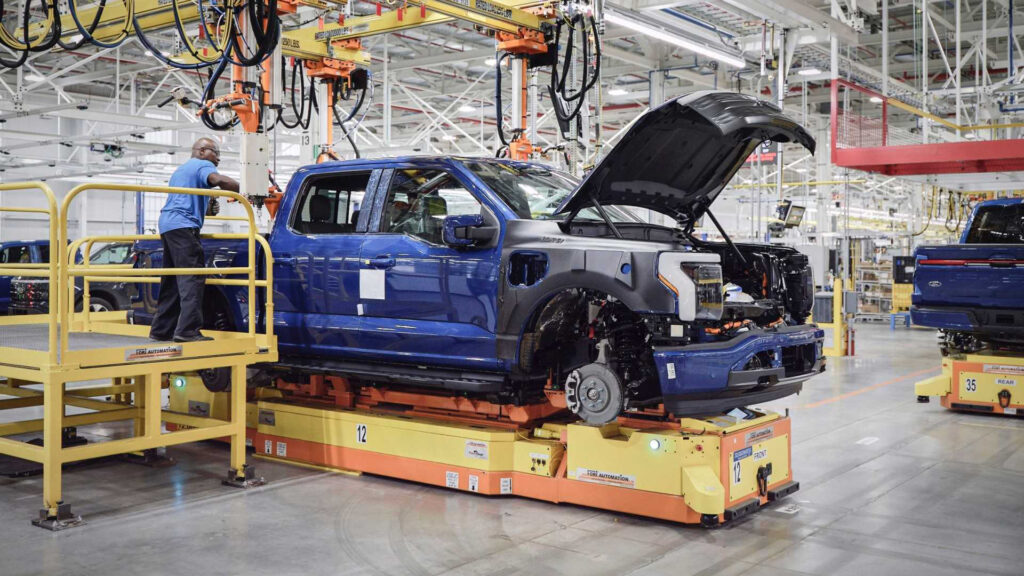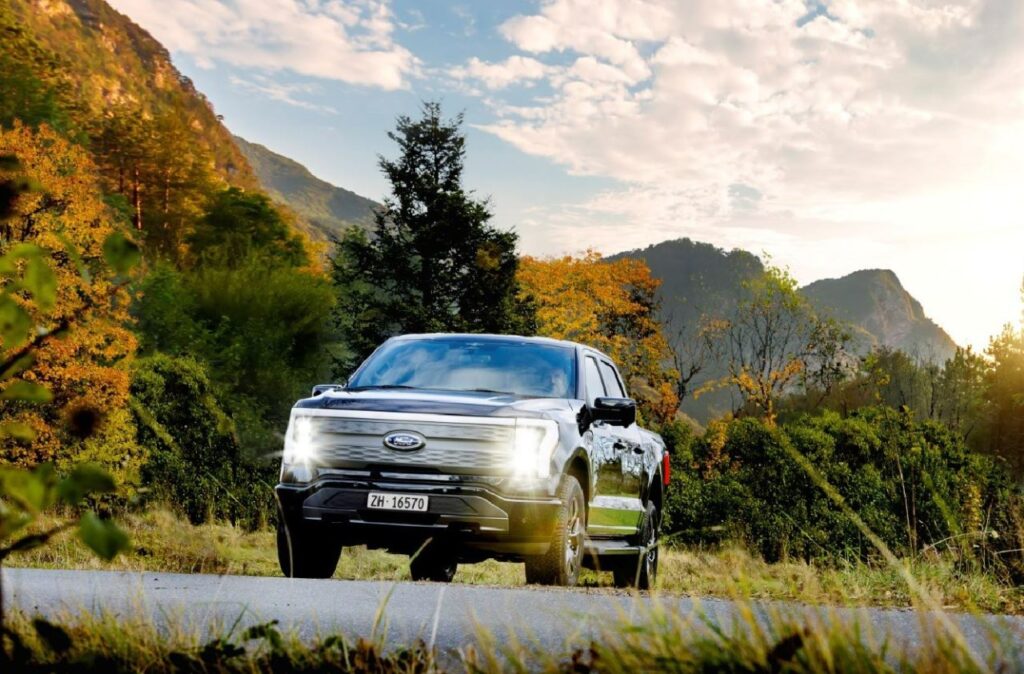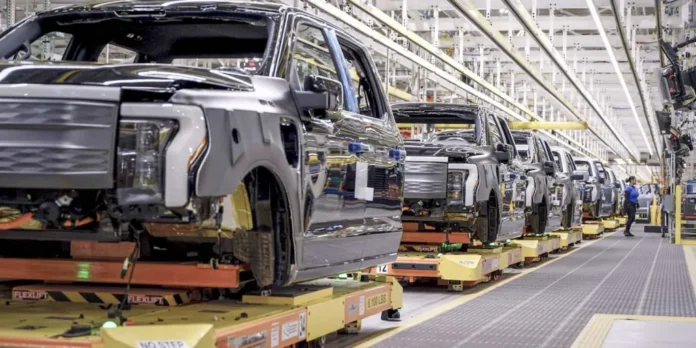As the firm struggles with large financial losses in its electric vehicle (EV) segment, Ford has decided to stop accepting orders from its suppliers of high-voltage batteries. With the Mustang Mach-E, the American carmaker is attempting to forge its way through a competitive and quickly changing electric vehicle industry, which is no easy task. A thorough analysis of Ford’s present approach, its problems, and its future goals can be found here.

Ford’s Severe Financial Losses Per Vehicle in the EV Market
For each EV it sold in the first quarter of 2024, Ford recorded a startling loss of more over $100,000. The primary reason for the twofold increase in this statistic over the previous year is the substantial reduction in the manufacturer’s suggested retail price (MSRP), which was implemented to maintain competitiveness with Tesla, the market leader. The business estimates that, in spite of these efforts, its EV unit would lose between $5 billion and $5.5 billion in total this year. The anticipated gains from Ford Blue, the company’s internal combustion car segment, were almost completely offset by these losses.
Making tactical changes, such as reducing battery orders
Ford is cutting back on its orders from battery providers CATL, SK On, and LG Energy Solution as a result of these financial difficulties. These alliances are still in place, but Ford strategically reevaluated its immediate goals in the wake of a lower-than-anticipated demand for electric vehicles in the US. This action is intended to handle the significant losses from its EV segment and cut expenses.
Also Read :- Suze Orman’s Key Advice: Avoid This Critical Car Buying Mistake
Postponed Releases and Modified EV Goals
Project Postponements
Ford has decided to postpone a number of important EV initiatives, even as EV sales in the first quarter of 2024 nearly doubled over the same time the previous year. These include a next-generation battery-powered three-row SUV and the all-electric truck known as “Project T3.” In order to ensure that new models are offered when they can be lucrative, the decision to delay these introductions is meant to give the EV market time to mature.
Reducing aspirations
As a major drag on the whole automobile sector, CEO Jim Farley has acknowledged the considerable problems faced by the EV market. In order to better meet customer demand and market realities, Ford is reversing some of its electric vehicle (EV) aspirations.

Changing the Subject: Hybrids and Inexpensive EVs
Focus on Hybrids
Ford is giving priority to hybrid cars in the near future in order to close the gap between conventional internal combustion engines and completely electric vehicles. In the upcoming years, the corporation hopes to double hybrid sales, which it wants to raise by 40% this year. This approach aims to keep a firm grip on the present market while easing customers into a future powered by batteries.
Creating Inexpensive Electric Vehicles
Apart from hybrid vehicles, Ford is expediting the creation of more compact and reasonably priced electric vehicles. The business plans to release a sub-$30,000 electric vehicle (EV) in late 2026. It is projected that this entry-level EV, which may retail for $25,000, will be profitable and cater to a larger market segment that looks for affordable electric alternatives.
Ford’s Long-Term Goals
Pricing and Production Costs
Ford is still dedicated to its long-term electric vehicle plan in spite of the present difficulties. Although the business anticipates a gradual decrease in EV production costs, it also recognises that intense competition and pricing pressures would probably negate these savings. John Lawler, the chief financial officer, pointed out that rivals’ aggressive price methods have consistently reduced top-line revenue, negating cost savings.
Production’s Strategic Transitions
Ford has also changed its production plan, concentrating on more reasonably priced smaller EVs and bigger electric trucks and SUVs. The development of these smaller EVs is being led by a specialised “skunkworks” team in California, with the goal of catering to both ends of the market.
Conclusion
In order to handle its current financial difficulties and position itself for future success in the changing automotive industry, Ford strategically reversed course and decided to stop ordering batteries and postpone several EV initiatives. Ford wants to strike a compromise between its capacity to expand financially over the long run and its ability to produce inexpensive electric vehicles (EVs) and hybrids. The company’s dedication to innovation and market adaption, in spite of the obstacles, shows its fortitude and strategic vision.
Disclaimer: The information provided in this article is based on available sources and may not be 100% accurate.

